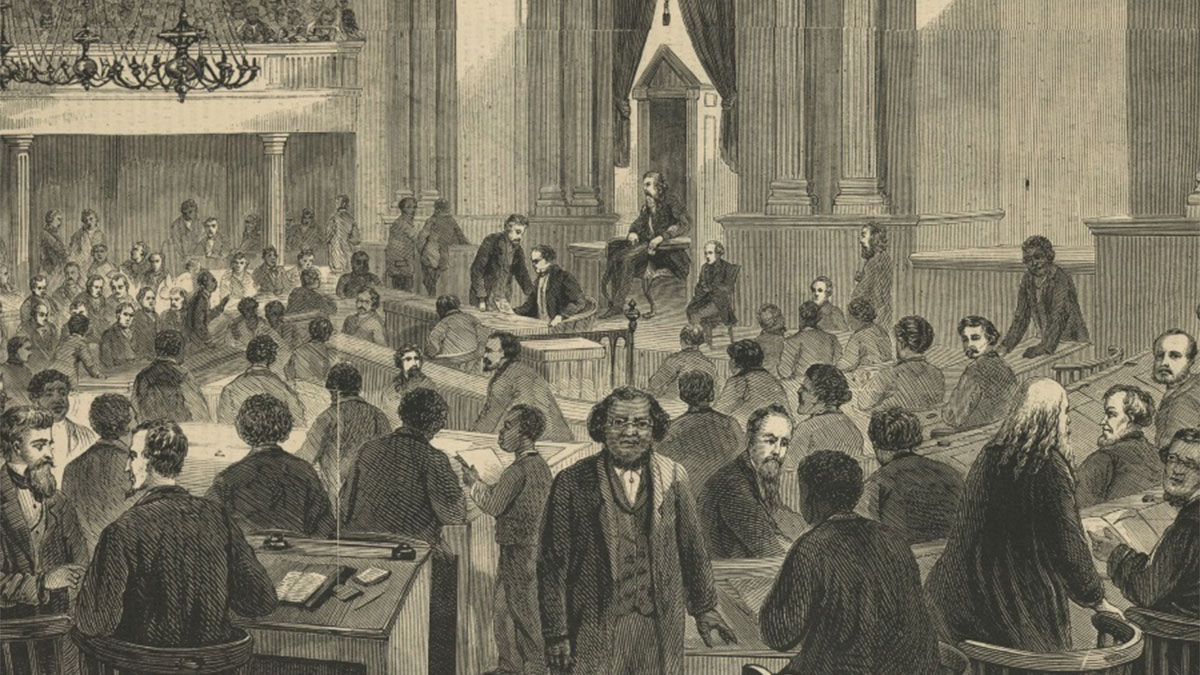
Oct. 5, 1870

The first Reconstruction Legislature, made up of 27 Black lawmakers and 150 white lawmakers, met in Richmond, Virginia — a state that had been devastated more by the Civil War than any other state.
After the war ended, Black Virginians battled KKK violence and the first round of Jim Crow laws. They tried to reconstruct their own lives, reuniting families, building churches and benevolent groups and starting their own businesses. To the astonishment of many white Virginians, Black Virginians proved adept at democracy and began bringing change.
With many white Virginians refusing to take a loyalty oath to the Union, a “Committee of Nine” created a compromise that traded Black support for former Confederates for office if they would support the state’s Reconstruction constitution. Voters backed the constitution, which embraced the 14th Amendment and Black voting.
Before the 1870s ended, the number of Black members of the Legislature grew to 30. In the end, however, “Virginia was never really reconstructed, rebuilt from the ground up,” the website, Reconstructing Virginia, says. “The same men ran Virginia after the war as before; the same heroes were worshipped and the same goals led government. As with the rest of the South, however, later generations took the 14th and 15th Amendments created in Reconstruction and resumed the work that Reconstruction in Virginia never had a chance to do.”

